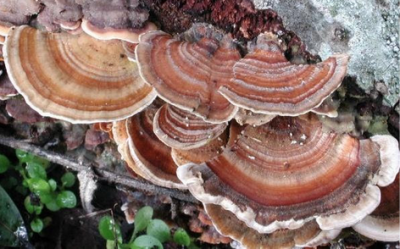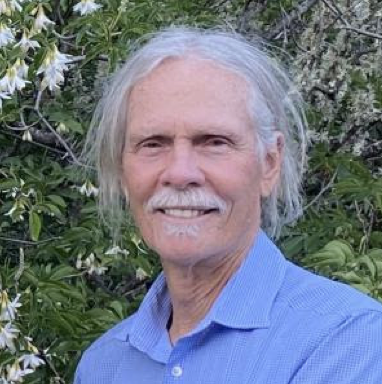What is Medicine? Herbs are not Drugs
Christopher Hobbs, PhD
 With the advent of the COVID-19 pandemic, the way we view our health and what we think about our medical system has changed in unexpected ways over the nearly 2 years since the first diagnosis in December of 2019.
With the advent of the COVID-19 pandemic, the way we view our health and what we think about our medical system has changed in unexpected ways over the nearly 2 years since the first diagnosis in December of 2019.
First and foremost, the importance of prevention has come into our awareness as never before. Many herb companies and dietary supplement companies are enjoying large increases in sales. The herb industry had a 17% increase in sales in 2020, according to a new report. Some companies I know that sell medicinal mushroom products have had up to a 50% increase or more in sales both in 2020 and 2021. Medicinal mushrooms are known to provide the most potent, safest, and most comprehensive immune activation to help protect us against a wide range of pathogens that is known. This is based on decades of scientific research in labs around the world.
Secondly, the idea that the health and responsiveness of our immune system is crucial in our sometimes difficult balance and interplay with many different pathogens, especially viruses which we still don’t understand fully. Are they alive? What is their agenda? These have been controversial questions for decades but recently many scientists have concluded that viruses are living organisms.
They obviously have a place in the web of life, helping populations and species maintain balance — to test our immunity and “tone” it up perhaps, and to kill when segments of the population become overcrowded and unhealthy. This should not be a controversial view, as it is just basic biology from the Wolves and the Caribou, the tree pathogen Chaga, to the tree parasite mistletoe.
Though on a personal level it is often tragic for families and loved-ones of the infected.
Given our increased interest in our health and maintaining it, a good question to ask, a crucial question, is “what is medicine?”
If we asked random people around the U.S., and around the world, at least in technologically-advanced countries, many would say that medicine is the bottle of pills we were prescribed from our physician. “Take your medicine at the prescribed time.”
In the U.S., about 50% of the entire population take at least one prescription drug, and about 30% take four or more.
When we look in the Merriam-Webster definition of the word “medicine,” we see “1a: substance or preparation used in treating disease. 2a: the science and art dealing with the maintenance of health and the prevention, alleviation, or cure of disease.”
Let’s think about this together. By “treating disease,” this should imply that the root of the disease, the causes, and the actual metabolic processes that underlie the symptoms we feel from having a disease should be adjusted, normality should be restored and maintained so the disease does not reoccur. The definition 2a above emphasizes this aspect of medicine.
The big question we must ask ourselves is, can one consider the synthetic chemicals produced in giant factories that are sometimes good at suppressing the symptoms we feel from a disease, like sweeping something we don’t want to deal with under the carpet, really “medicine?” Further, what about the tremendous amount of waste that the manufacture of modern pharmaceuticals produce? What about the metabolized and unmetabolized drugs we ingest and eliminate in our stool and urine? Synthetic estrogens have been detected in the Puget Sound in substantial quantities. Community wastewater contains benzodiazepines, SSRIs and many more types of synthetic compounds.
Is all this “good medicine” for the many other creatures we share planet Earth with? For the forests? I think we know the answer!
So with that rather dour discussion, what is true medicine, medicine that does heal, and work with our body’s many immune, hormonal, neurological, and metabolic processes rather than just suppressing the symptoms, as well as have many potential side effects?
Firstly, can we agree that getting a hug from a loved-one, a child, well just about any human, is certainly good medicine? Spending time in a forest, inhaling the wonderful scent of the pines and firs, wandering, discovering all the colorful mushrooms coming out of the thick duff. Recently this has been called “forest therapy.”
Certainly, joyful movement, dance, making love, and even weight-training is good medicine.
Lastly, we can turn our attention to herbal medicine, which includes mushroom medicine.
Here are some ways that herbs are fundamentally different from synthetic pharmaceuticals.
- Works with the body’s natural processes rather than forcing or blocking body processes (like benzodiazepines). Receptor-binding is less “tight” than designer drugs, and reversible. Drugs are manufactured monosubstances....thousands of candidate synthetic molecules are flooded over tissue with target receptors and the ones that bind strongly, often irreversibly are chosen for further development. After taking a benzo, receptor sites can be permanently taken off-line, not allowing our own feel-good neurotransmitters like anandamide, to bind. It may take a week or two to fully repopulate these crucial receptors. That’s why the number one side effect of benzodiazepines, prescribed often for anxiety is....you guessed it, anxiety.
- Often, compounds from plants do not breach blood-brain barrier and other safeguards as many pharmaceuticals do.
- Herb constituents are diverse, complimentary (based on evolutionary familiarity with our metabolism over millions of years); synthetic compounds are foreign to the body, almost by definition.
- Plants produce an amazing array of chemical compounds (perhaps up to 500 in different constituent groups...alkaloids, phenolics, terpenes, glucans, etc.). This complex nature matches with our own, and all of life. The more processed a plant or mushroom is, the less complex.
- Mostly gentle, because we co-evolved with them our body has familiarity, less immune reactions, inflammation (especially when in their unpurified form).
-
Herbs (including mushrooms) are “Food-medicine.” Many medicinal “herbs” are also foods with a nutritional content, widely consumed throughout history.

Turkey tail mushrooms - Drugs are not for long-term use (with few exceptions) Useful for short-term heroic purposes; plants and mushrooms for daily use.
- Meditation, psilocybin, yoga and other practices connect our mind and spirit to our body, herbs (and mushrooms) connect us to the earth, and nature, of which we are an integral part. Psilocybin (ideally along with a counseling and mentoring relationship with a guide) can help us access deeply held ideas and memories about trauma we have experienced and ways of relating to it, in order to change our relationship to it. We can gain the ability to have more mindful, conscious, and rational responses to the trauma, not allowing it to define us. Symptoms when these old traumas are triggered like depression and anxiety can subside. This is truly medicine.
- Herbs are nutritious, balanced, non-toxic, sustainable
- “Side benefits, not side effects.”
It’s important to remember that all life is predicated on the ability of green plants to capture energy from the sun, which is 93 million miles away from us. This was made possible at the time of the “Great Oxidation Event,” some 2.3 billion years ago with the aid of Cyanobacteria, one-celled organisms, perhaps the “inventors” of chlorophyll 200 million years earlier. Within the inner workings of this amazing molecule, electrons are raised to a high level from the minute amount of captured energy from sunlight, then transformed and stored as carbohydrates, upon which most life on earth depends.
The same processes and resulting chemistry are the building blocks of all the amazing complex chemistry of plants. Plants have a very rudimentary nervous system, but a dazzling array of natural chemicals that are the same chemistry that has interacted with our ancestor’s chemistry, our chemistry, to support, readjust pathways in our bodies. Green homeostasis support on every level.
 Dr. Christopher Hobbs is a fourth-generation internationally renowned herbalist, licensed acupuncturist, herbal clinician, research scientist, consultant to the dietary supplement industry, expert witness, botanist, and mycologist with over 40 years of experience. The author and co-author of over 20 books, Christopher lectures on herbal medicine worldwide.
Dr. Christopher Hobbs is a fourth-generation internationally renowned herbalist, licensed acupuncturist, herbal clinician, research scientist, consultant to the dietary supplement industry, expert witness, botanist, and mycologist with over 40 years of experience. The author and co-author of over 20 books, Christopher lectures on herbal medicine worldwide.
He has taught at numerous universities and medical schools, including Bastyr University and the National School of Naturopathic Medicine. He taught classes for over seven years at University of California, Berkeley, as a PhD graduate student in evolutionary biology, phylogenetics, plant chemistry, and ethnobotany, and also as a faculty lecturer. Christopher is currently teaching a fully accredited lab class in all aspects of herbal medicine at the University of Massachusetts, Amherst.
Catalyst is produced by The Shift Network to feature inspiring stories and provide information to help shift consciousness and take practical action. To receive Catalyst twice a month, sign up here.
This article appears in: 2021 Catalyst, Issue 15 - The Future of Plant Medicine Summit



